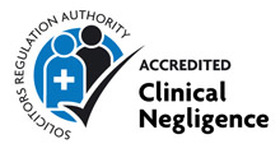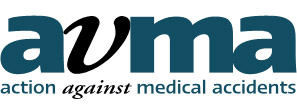Legal Aid and Cerebral Palsy Claims
|
Legal aid is a UK government funding initiative for those that struggle to pay their legal bills. Legal aid helps to meet the costs of legal advice, family mediation and representation in a court.
Depending on what legal advice you require, Bridge McFarland Solicitors offer 'No Win No Fee' funding solutions. This type of funding is provided for personal injury and medical negligence cases. If however you require legal aid support for other advice, you will need to show that;
Examples of when you can get legal aid include; you and your family are at risk of abuse or serious harm; you're at risk of homelessness; you've been accused of a crime and face detention; you're being discriminated against; you require family mediation; you're bring a case under the Human Rights Act. Legal advisors usually apply for legal aid on your behalf. Note that not all law firms in the UK offer legal aid. Check if you can get legal aid here. |
|
|
There are many clinical negligence solicitors experienced in dealing with cerebral palsy claims, but only a few specialists who truly understand the issues. Finding a specialist is key to ensuring successful conclusion with appropriate compensation for the years ahead.
A parent's instinct is strong however the resolve needed to make a claim following a child birth injury will test even the most determined. There are upwards of 1800 children born in the UK each year with a form of cerebral palsy but only small proportion of these judged to be the result of medical negligence. Cerebral palsy claims should be run by an experienced solicitor.
It may have been obvious from early in baby's life that they something was not right, particularly if the birth was traumatic or mum had problems during pregnancy. It is however often months or even years later when the picture finally becomes clearer. Damage to baby's brain, whether due to injury or malformation can cause a range of symptoms which become increasingly more noticeable when developmental milestones are reached. Although parent's can have their suspicion all is not well with baby it takes an experienced medical specialist to diagnose the condition. Parents become anxious and need to know how it will affect their child's life especially in more sever cases. At this point the focus is aimed towards the quality of medical care during pregnancy, at birth and post natal. It is perfectly normal to look at reasons for baby's ill health and sometimes this can give a tainted opinion. The vast majority of pregnancies and births are problem free. However, it is a sad fact of life that cerebral palsy can occur because of acts or omissions of treatment by medical professionals at the time of birth. This may lead to serious and permanent injuries. Where a child has been injured because of another's negligence compensation can be sought which will proved finances to meet the costs of ongoing care, therapies, accommodation and equipment needs for the rest of that child’s life. Parent's at this point will require answers to their concerns about the quality of care and this is done by making a complaint to their local hospital or health authority. Most solicitors will be happy to assist you making a formal complaint. If the response is inadequate or in the parent's opinion flawed the next step is to find an experienced medical negligence solicitor to take the claim forward, the process of making a claim is called litigation and this will be conducted on behalf of the injured child who shall be known as the claimant. The claimant must prove that their injuries were caused by care which fell below what would be considered an acceptable standard. The claimant must then prove that that substandard care was likely to have caused the injuries. To meet this burden and standard of proof your solicitor must assemble a team of appropriately qualified experts to assess the standard of treatment provided and then link the treatment to the injuries caused. It is important therefore that the lawyer you instruct has the experience to understand the medical issues involved, which experts to select to provide expert advice throughout the case, and explore the most appropriate way to fund your case including exploring legal aid. Legal aid is where your case is taken on using public purse to fund your claim and not out of your pocket. However there are significant changes from April 2013 to the application criteria. The only type of clinical negligence claim that can be issued under legal aid is where a child suffers a neurological injury before, during or no later that 8 weeks from birth. Only a small number of solicitors hold a legal aid franchise.* Your solicitor will advise the most appropriate option for you to fund the case, whether legally aided or another another method. Your medical experts will advise after considered deliberation and this will allow you and your solicitor to decide if the case has good prospects of success. If you decide to progress your case your claim will be issued to the court. If the court finds that the Hospital is responsible for the injuries suffered or if (as is often the case) the Hospital admits that members of its staff were at fault then your solicitor will instruct experts in therapies, care, accommodation and equipment needs to value the claim by assessing the claimant’s current and ongoing needs. Usually this results in a one off lump sum compensation payment to meet immediate equipment and accommodation needs plus an annual index linked payment for life to cover the ongoing care needs. The lump sum and ongoing payments are generically referred to by lawyers as damages. Interim payments may also be made where liability is admitted but the case is ongoing. Rehabilitation care and home adaptation costs are often met at this stage as the case is ongoing The cost of appropriate care and therapies is considerable and can be a daunting prospect for a family to manage. Your lawyer will have built into the claim the cost of having those damages managed either by Professional Deputy if the funds are to be held in the Court of Protection or in a Trust Fund. Solicitor’s firms which conduct this type of specialist medical negligence litigation will have their own departments to manage these funds on behalf of their clients. If a child is unlikely to be able to manage his or her financial affairs on reaching the age of 18 it is likely that a court will have made an order that the damages are placed in The Court of Protection. This Court exists to protect the finances of those who are unable to look after their money themselves. A Deputy is appointed by the Court to take over the responsibility for looking after the property and affairs of those who lack the capacity to do so themselves. The role of a Deputy is a time consuming and sometimes complicated one. For example, a care regime will involve the hiring of carers, organising their contracts, insurance and pay. A Deputy will take responsibility for purchasing appropriate accommodation, ensuring the appropriate planning advice is obtained and then arranging, managing and paying the contractors who carry out the adaptations to the property. The Deputy will also be responsible for preparing tax returns and sourcing expert investment advice. It is recommended therefore that a professional Deputy is appointed. What if the injuries are physical but not likely to affect the child’s ability to manage their own financial affairs? It is likely that a Personal Injury Trust would be suitable. The Trust is administered by those who are appointed as Trustees. This could be family members or professionals, or a mixture of the two. Either way, it is imperative that all decisions are taken in consultation with the family and the needs of the injured party are always paramount. They are the Trustees and will manage the fund in much same way as would a Deputy. If the child so wishes and has capacity to do so he or she can revoke the trust on reaching the age of 18 years. There are though, significant advantages to leaving the damages in Trust. The Trustees take responsibility for the management of the damages on a day to day basis and will carry out the same administrative tasks as would a Deputy. Whilst the family is involved in all of the decision making but the burden of administering it is usually taken up by the Professional Trustee. With a Personal Injury Trust in place it is possible to claim means tested benefits as personal injury compensation in a Trust Fund is not included in the assessment of the means of the Claimant. Over a period of time those benefits can amount to substantial amount of money. There is no question that this kind of litigation is often misunderstood by the media and sometimes inaccurately reported. But it is a fundamental right that where a child is injured they are entitled to recover compensation that should put them in a position they would have been in had they not suffered those injuries. This simply cannot be achieved. But compensation can at least provide some peace of mind to families that the child who has suffered injuries in consequence of someone else’s mistake will be able to afford the care they require for the rest of their life. Making a careful choice of solicitor for your cerebral palsy claim is key to making the claim as easy as possible despite the complex nature of the litigation. Our simple guide, opposite, covers the main points you will need to help you decide on the choice of legal expert that is right for you. Cerebral palsy claims need the touch of expert solicitors. The challenges dictate that only the experienced and dedicated will reach the successful conclusion. You and your family deserve the best possible outcome. |
Simple guide to choose the right solicitor
Questions to ask a solicitor before appointing 1) Experienced in dealing with cerebral palsy claims? 2) Accredited by AvMA or an accredited clinical negligence solicitor? (see links on logos below) 3) References and recommendations from clients in similar circumstances? 4) Way to fund my claim? 5) Is Legal aid available and do they hold a legal aid franchise? 6) Raise any concerns. The answers should help to put your mind at ease. "There are many clinical negligence solicitors but you need an expert in cerebral palsy claims in order to give you the best chance of success." Look for these logos to help you choose the right solicitor for your birth injury claim or alternatively contact us for help.
|





